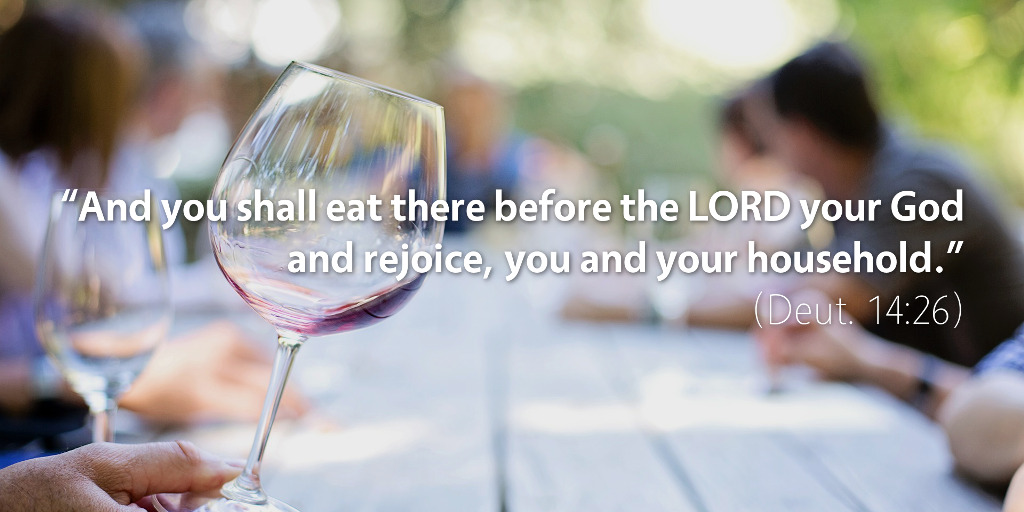Bible Readings for June 9th
Deuteronomy 13–14 | Psalms 99, 100, & 101 | Isaiah 41 | Revelation 11
Deuteronomy 14 changes the way that we see our offerings to God. Sadly, we can too easily come to look at the act of bringing our offerings to God as a kind of a tax, where we send off our checks to some impersonal government in a distant land so that they will do whatever they want with it without any regard to what would be best for us, the tax-payers.
But not so with Yahweh. The Israelites were commanded to bring a tithe (10 percent) of everything they grew in their fields annually as an offering to Yahweh in the place that he would choose (Deut. 14:22–23). Obviously, they couldn’t send a check through the mail, and they couldn’t electronically file their tithe, so they were commanded to bring it personally to that place during the festivals.
Now, we read about the festivals and the other sacrifices that were required at those festivals in Leviticus 23 and Numbers 28–29, and we will read more again in Deuteronomy 16. The unique material in Deuteronomy 14, though, is that Moses here makes a provision for the people who lived too far away to bring their sacrifice physically to the festival. For those people, Moses explained that they were supposed to trade their crop for money and then take that money (rather than the animals, grains, and other cumbersome sacrifices) to the place of God’s choosing, where they could spend it on whatever they needed to throw a huge party—anything at all, including rich meats, wine, and strong drinks (Deut. 14:24–26).
That’s right—Yahweh actually commands his people to spend their tithe (under some circumstances) on a big party with plenty of alcohol if they are not able to get their sacrifices to the festival. Does that sound like a greedy God?
But at the same time, we aren’t supposed to think that Yahweh was commanding wild, out-of-control, self-centered partying. Feasting and joy, yes; debauchery, no. The whole point of all of this is that God’s people would “eat there before the LORD your God and rejoice, you and your household” (Deut. 14:26). Yahweh never wanted to grab up the tithes of his people out of greed. Instead, he wants to rejoice in the presence of his people.
And we should not overlook the fact that Yahweh also commanded his people to care for the poor in their midst, including the Levites (who had no property inheritance but depended on the offerings of the other Israelites), sojourners, orphans, and widows in their towns (Deut. 14:27–29).
Deuteronomy 14, then, isn’t teaching us to skip giving to our church and spend our offerings on our own, selfish pleasure; quite the opposite, in fact. Here, we are learning how to give with joy while meeting the needs of those around us.
Why do you give?
Podcast: Play in new window | Download (4.8MB) | Embed
Subscribe: Apple Podcasts | RSS | More

Scripture quotations are from The Holy Bible, English Standard Version copyright © 2001 by Crossway Bibles, a division of Good News Publishers. Used by permission. All rights reserved.


